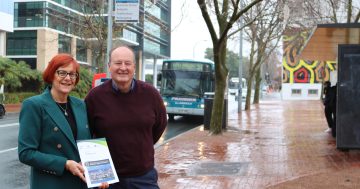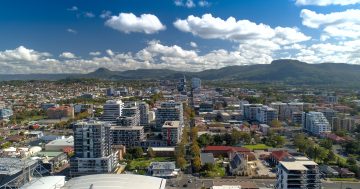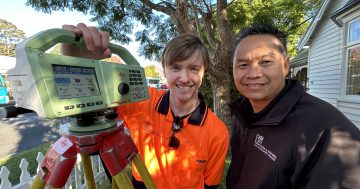
RDA Illawarra chief executive officer Debra Murphy. Photo: Jen White.
Illawarra bosses are struggling to retain staff who are taking advantage of record-low unemployment rates in the region to switch to higher-paid jobs to help cope with the rising cost of living.
A two-year research project by Region Development Australia (RDA) Illawarra found more than half the respondents in a recent survey believe employees are choosing jobs with better pay and conditions in a tight labour market and are willing to switch industries or locations to meet their needs.
RDA chief executive officer Debra Murphy said the first round of the Skills Demand Survey – a two-year research project aiming to deliver skills demand data at a local level – was completed in May, with 185 Illawarra organisations revealing the challenges they face.
The research findings were presented to a forum at the University of Wollongong’s iAccelerate centre on Friday (11 August).
The forum was told there was an “extraordinary level of transformative major projects” with an investment of $33 billion planned for the region by 2041.
Equivalent to six Western Sydney Airport developments, the projects will demand more than 4250 workers for construction alone, at a time when workers are in short supply.
The survey found workers were attracted to the Illawarra lifestyle but those moving into the region had high salary expectations.
Housing affordability and availability, along with poor transport links, were also perceived as possible causes of skills shortages.
Ms Murphy said the research was crucial to ensure businesses could attract and retain the skilled staff necessary for their operations.
“As a region, we cannot take an ad hoc approach to building a regional workforce with the skills needed for employers,” she said.
“It is only by understanding the needs of employers and the desires of workers locally that we can effectively fill the skills gap through appropriate training, cross-skilling and targeted skilled worker migration.”
Research from the first round of the survey shows 56 per cent of Illawarra businesses rate the level of skills shortages as either high (31 per cent) or extreme (25 per cent). Shellharbour employers rate the shortage as even more critical, at 77 per cent. Sixty per cent of respondents expect an acute shortage of skilled labour to last for the foreseeable future.
The survey found 76 per cent of respondents believe skills shortages were negatively impacting their business growth and planning.
Occupations where skilled workers are currently in high demand include trades, administration and accounting, youth services and early childhood, butchers and food processing. Occupations in future demand include auto bodywork and mechanics, data and IT, and practical trades.
Ms Murphy said the forum discussed possible solutions to the skills shortages, including training or upskilling current staff, and other options for businesses to make them a workplace of choice.
“In particular, if we had 25 per cent of people aged 65-70 in our workforce, instead of the current 3 per cent, it would mean an extra 4400 employees,” she said.
Many people in that age demographic were keen to work – “and they already have housing” – but current legislation restricts their capacity to earn.
Ms Murphy said employers were also concerned about the impact of staff shortages on the health and wellbeing of their employees.
“They worry about their employees being overworked and under more pressure and the increased fatigue and mental health issues that could create,” she said.
RDA Illawarra policy manager Alex Spillett said the data was vital to informing decision-making around skilled migration and assisting the education and training sector in course selection and design.
“Examining the challenges faced by employers can inform future training and education strategies by TAFE and UOW,” he said.
“We, as a region, can then develop and share best-practice strategies for employers and educators or training organisations.
“It is only by understanding where the shortages lie, and the reasons for them, that we can attract qualified and experienced workers who are invested in the future of the Illawarra.”
All Illawarra businesses are invited to take part in the next six-monthly survey in October, which will be conducted by phone or online. Employers will be asked about the skills and occupations that are specifically required for their business now and into the future.
For more information on the Skills Demand Survey and outcomes from the forum, visit the RDA Illawarra website by clicking here.
















